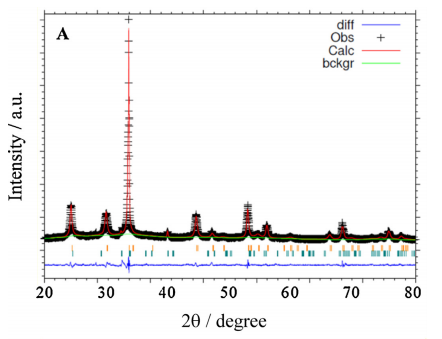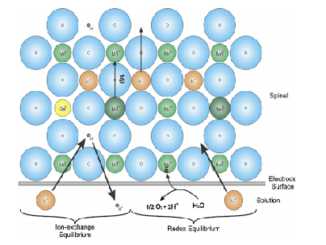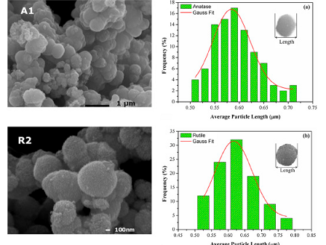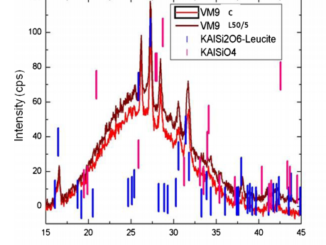
Insights into electrodegradation mechanism of tebuconazole pesticide on Bi-doped PbO2 electrodes
Abstract: The effect of the Bi doping of PbO2 coatings on the electrochemical degradation of the pesticide tebuconazole (TBC) was investigated. The insertion of 8% Bi (relative to the amount of Pb) in the PbO2 structure afforded a well-defined texturing in the direction of the (2 0 0) plane to the PbO2 coatings, as well as, a decrease in the size of the coherent domain of the crystal, an increase in the electrochemical roughness and in the oxidation power of the Bi-doped PbO2 compared with PbO2. Through ultravioletvisible spectrometry and total organic carbon (TOC) analyses for TCB electrodegradationwas possible to chose the current density of 40 mA cm(-2) as optimized one, with 68% of TOC removed by the Bi-doped electrode and 56% removed by the PbO2 electrode. High resolution liquid chromatography coupled with electrospray ionisation high resolution mass spectrometry helped to propose an oxidation pathway for the electrochemical degradation of TBC. Nine electrooxidation products were identified; which were produced by hydroxylation of the TBC phenyl group and its consequent oxidation to a ketone (including both mono-and dihydroxylated products), by dechlorination (two different products), and by multiple oxidative steps with ring opening (two different products). It was possible to conclude that the electrooxidation of TBC using Bi-doped PbO2 anodes generated products that were less harmful than TBC itself, thus recommending this electrode as an alternative material for wastewater decontamination. (C) 2014 Elsevier Ltd. All rights reserved.
Author(s): de Figueredo-Sobrinho, FDA; Lucas, FWD; Fill, TP; Rodrigues, E; Mascaro, LH; Casciano, PND; de Lima-Neto, P; Correia, AN
ELECTROCHIMICA ACTA
Volume: 154 Pages: 278-286 Published: FEB 1 2015
PDF: Insights into electrodegradation mechanism of tebuconazole pesticide on Bi-doped PbO2 electrodes
DOI: 10.1016/j.electacta.2014.12.062




